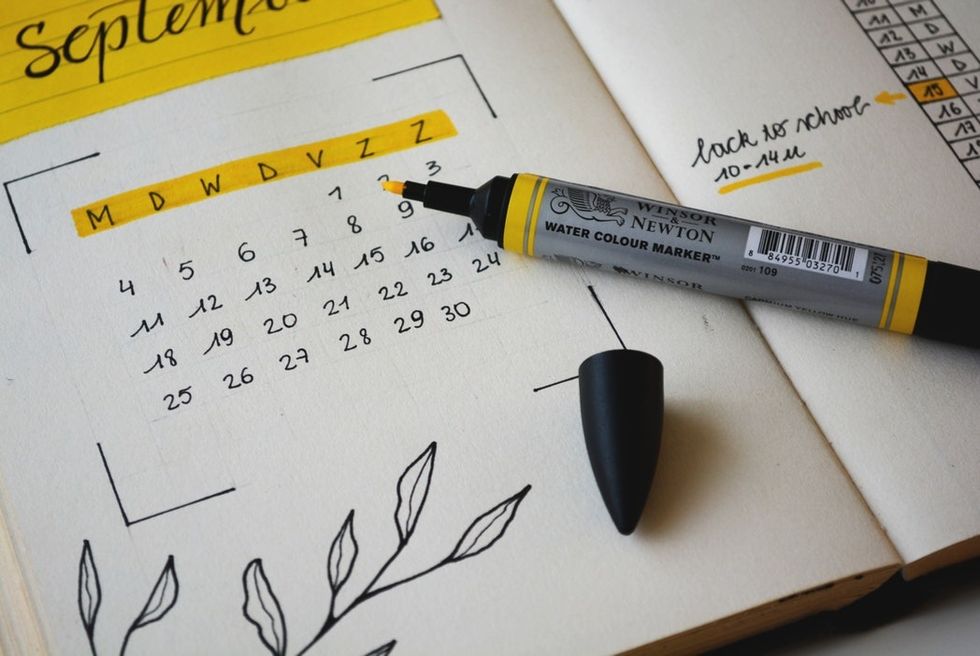As human beings, it is only natural for us to imprison ourselves in routines composed of bad habits, regardless of our age in life. Whether we are in our twenties or in our forties, it's difficult to break from our daily routine and stop ourselves from using habits we've used for so long even though we might be conscious of their negative effects. Common bad habits like biting your nails or swearing are a bit easier to conquer, however; bad habits that are performed in casual daily activities like: procrastinating, watching too much television, or sleeping in, are much more difficult to change. Therefore, I challenge you to follow these next 6 steps to break your common routine, which I guarantee will change your life.
1. Determine the "what," the "why," and the "outcome."
So to start this off, you need to identify the following:
The "what": This is the act you want to change about your life. Is it waking up earlier to get to work on time? Is it finding time to meditate so you relieve yourself from your anxiety? Is it buying a schedule and becoming disciplined with your studies? What is it?
The "why": This is the reason you want to change your routine or habits. Identify why you want to start exercising? Or why you want to start writing and reflecting when you get home from work? What is your "why"?
The "outcome": This can also be called the "so what?" This is your feeling beneath the surface. Therefore, you must identify what feelings provoke you to routinely practice your bad habit and what you expect to be different once you are successful.
Example:
A person relies on food to relieve themselves of a stressful day and is extremely overweight, and he or she realizes that it's starting to affect his or her health. So, that person now understands that the excessive amount of food needs to become controlled and ultimately stopped (the "what"). The person wants to stop eating excessive amounts of food because he or she wants to remain healthy and live longer (the "why"). The person also understands that eating these amounts of food is due to high levels of stress and anxiety, and therefore is prepared to seek help to learn how to manage the stress and anxiety in a healthier and more effective way (the "outcome").
2. Say no to excuses.

Isaiah Rustad
Human beings love to complain, but more than anything, we like to make up excuses. In order to change your routine and get rid of your bad habits, you have to say no to all of the excuses your brain likes to create for you. The human body likes to maintain homeostasis (or balance), and it regularly works in constant cycles. If you get home from work every evening and lay on the couch, the brain and body will accommodate. Hence, if you set a goal to go to the gym instead of the couch one evening, your brain will remind you of that goal but it will simultaneously release thoughts rejecting the effort to change and do exercise because it is comfortable.
So when you set your goal, don't listen to the inner voice telling you to do everything except the change, instead of thinking to just do it. I know what you might be thinking: It is easier said than done. But let me tell you, that is just an excuse your brain is using against you. Plus, let me remind you that nothing is impossible, especially when we start to prioritize it.
3. Wake up earlier.
A lot of people hear the words "wake up early" and automatically reject the idea. The fact of the matter is: Waking up earlier than you are used to is going to cause a physical change within you. Your body and mind will feel different from waking up at 5:30 am instead of 7 am (and no, not just the feeling of being more tired - well maybe at first). By giving yourself an extra two and a half hours or so every morning, it is automatically making your day longer, more productive, and different. Eliminating a bad habit is essentially changing a part of who we are, hence why changing the entire daily routine is necessary. Plus, by doing this, your excuse of "having no time" is also eliminated.
4. Set a time for everything.

Crew
What I mean by setting a time is keeping a constant time set for your activities. For example, if going to the gym is what you want in your new life routine, keep it consistent. If you have decided to do it every morning before work, pick a time and do it every day at that time. If you have decided to start incorporating meditation before bed, don't just go to bed at a random time and meditate prior - set a specific and realistic time that you will meditate and want to go to sleep right after. If you do it too early, then you won't sleep, and if you do it at different times every night, it will become harder for you to keep it consistent for longer than two to five days.
5. Always keep a positive attitude.
It's important to keep a positive attitude during this process. The first few days will not be easy. In fact, your brain and body will do everything in their power to make you stop and give up. But it is important to keep reminding yourself why you are doing this and what you want coming out of it. If you're struggling, write supportive quotes on blank sheets of paper and hang them in your bathroom, kitchen, bedroom walls, or keep some in your purse or car. Do anything to keep yourself motivated because you can do it. You are in control, even when there are curveballs.
6. Keep it up for at least 30 days.

It may seem infinite, impossible, and overwhelming, but I guarantee you that once the 30 days of this process are completed, your body will have readjusted and you will no longer want to go back to your bad routine.



















